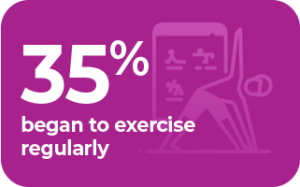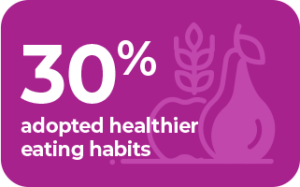Evidence-Based Behavior Change Solutions Help Transform Clinical Practice
Customer Success Story
How the Rhode Island Quality Institute transformed clinical practice by implementing behavior change solutions to drive patient outcomes and improve quality metrics for tobacco cessation and weight management.
The Challenge
Amid the shift to value-based care, clinicians are eager to improve patient outcomes and demonstrate the achievement of quality metrics, particularly with regard to screening and resource provision for smoking cessation and weight management. This is especially important as tobacco use and overweight/obesity are key contributors to poor health, chronic disease progression, and health care costs.
As part of an $8.3 million grant from the Centers for Medicare and Medicaid under the Transforming Clinical Practices Initiative (TCPI), practice facilitators in Rhode Island wanted to offer evidence-based, behavior change solutions to individuals and clinicians at six medical practices and behavioral health sites throughout the state in order to promote screening and resource provision for key behavior change challenges.
“[The payer] is much happier with me doing it…This has helped with my documentation… If I give them a prescription, I am much more apt to document it…and it makes me follow-up on it more.”
– Nurse Practitioner
The Solution
ProChange saw the opportunity to integrate proven digital solutions into diverse clinical settings to improve patient outcomes and quality of care. Settings included specialty practices as well as outpatient treatment programs for opioid-use disorder and a behavioral health clubhouse.
ProChange customized components of aleta™, its turnkey suite of behavior change solutions, to create HealthCoach for Me, a comprehensive end-to-end solution that screened patients and enabled clinicians to prescribe up to four patient-facing behavior change programs that included customized text message tips. In addition, HealthCoach for Me incorporated a provider-facing clinical dashboard that gave clinicians the immediate, actionable insight they needed to support individual participant behavior change journeys.
“It was different than anything else. I’ve gone into a lot of different programs, but this one was almost interactive with you. It spoke to you personally…It’s almost like it’s a person that’s trying to continually encourage you.”
– HealthCoach for Me User
Individuals and staff at each of the six sites were invited to participate by completing a mini-Heath Risk Assessment & Intervention (HRI) to determine current health risks and eligibility for behavior programs.
In close collaboration with the TCPI team, ProChange trained staff at each site and helped create site-specific promotional materials. ProChange also consulted with the client on the incentive design for the pilot test of HealthCoach for Me.
The Results
In addition to being well received by participants and staff, the digital behavior change tools were successful at reaching those who needed them most:
%
Of users would recommend HealthCoach for Me to a friend
%
Gave it four or more stars on a five-star satisfaction scale
“I like that when you least expect it, you get some sort of inspirational text message.”
– Office Manager
- Over 95% of users assessed were at risk for one or more health behaviors
- 88% Were overweight or obese
- Nearly 50% were tobacco users
Without the screenings enabled by the digital behavior change tools, these important risk factors could have been left unaddressed. Not only were the tools successful at identifying at-risk participants, they were also effective in helping participants change their risky behavior. Preliminary data also underscored the effectiveness of the programs. For example:


Along with high participant satisfaction and improved outcomes, clinicians indicated that it also improved their processes and workflow.
– Nurse Practitioner